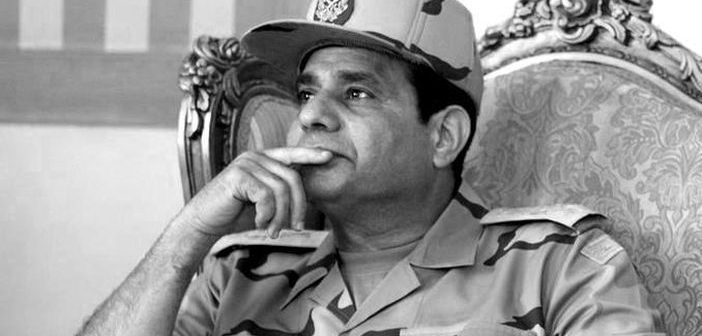We all know that the Egyptian President Abdel Fattah Al-Sisi is considered a strategic ally of general Khalifa Haftar, the commander of the so-called “Libyan National Army”, supported in the East by the government of Bengahzi and the parliament of Tobrouk (but not by the other side, the government in Tripoli).
We also know that alongside other Arab countries, such as the United Arab Emirates (UAE) and Jordan, he played a key role in arming the general and supporting him with all options in the “process of dignity” (or “al-Karama” in Arabic), a comprehensive military operation launched by Haftar in May 2014, against the Islamic militias in Benghazi and eastern Libya.
Libyans saw the quantities of arms, military vehicles and warplanes coming from Egypt, which flowed into Libyan territory, and they saw Egyptian political support for the government of eastern Libya – but Libyan citizens are wondering why all this support?
Al-Sisi supports both of the two rival governments (in Tripoli and Benghazi/Tobrouk), he is trying to get involved in the Libyan crisis to show the world his influence, and to attack the terrorists on the Libyan side of the borders. Al-Sisi is playing on two different sides in Libya to gain more; he fights Islamic groups alongside the Tobrouk government, and calls for political dialogue and resolution of the Libyan crisis alongside Tripoli.
Is the Egyptian regime planning to lay its hand on the huge oil wealth in Libya?
For many observers this could be a solution for the financial crisis in Egypt. It would also mean an end to the Saudi threats of cutting off oil supplies to Cairo if it fails to respond and participate in bombing Yemen.
Or is it looking for a strategic outlet and a geopolitical gateway to the outside world? To show the Russians and the Europeans that he has important allies in Libya, and that he can also become the “center of gravity” to end the Libyan crisis, and have an important position among his own allies.
Do they wish to reboot Egyptian employment in Libya? Since the decay of Libya, the lost employment has deprived Egypt of millions of remittances and brought a great burden to the country in terms of social welfare.
But the most obvious point is that the Egyptian regime wants to crush the Islamists who organized their ranks in Libya after the fall of the Muslim Brotherhood in Egypt, who were planning to carry out subversive operations against the regime, army and police.
These Islamists are divided in different organizations such as Ansar al-Sharia, Al-Qaeda in Libya, Benghazi Defense Brigades (close to Al-Qaeda), the Islamic State (IS) and also the most important heads in the Muslim Brotherhood agreed to put their conflicts aside so asto cooperate against the Egyptian regime and his ally Khalifa Haftar. And most of these groups never hide their inclination to attack Egypt from the West if Haftar were to be eliminated.
There are many common things that bind Egypt and Libya. The two countries share a border of more than one thousand kilometers; there are commercial and social relations between the two peoples, which makes the Egyptian-Libyan agreement with all the conflicting parties important and inevitable.
Also, there are many Libyans who see Al-Sisi as a “great leader”, and want Haftar to follow his lead to end the period of Islamic parties using force and violence since the revolution in 2011.
Those types of Libyans who support the military leadership centralizing mostly in the East think that the main situation will be better, if someone like Al-Sisi were to hold the country together to end the destruction of the country happening since the revolution. Many military leaders and policemen were executed between 2013 and 2015 by jihadists in Benghazi. Not less than 600 government officials from the Gadhafi era were executed live on the streets of Benghazi at daytime.
At the same time, Libya remains coveted by many regional states such as Qatar and Turkey for its investments, UAE and Egypt for influence, African smugglers, gaining in gas, humans, cars, and mercenaries fighting in a war they don’t know anything about, or what the reason of the fight is…
It became a clear example of the failed state, which cannot control its entire territory and airspace, where foreigners compete to assert their control, and whatever in Libya strikes Al-Sisi as interesting – the Libyans will welcome him in spite of his dictatorship, not for him, but because the West forgot its duty and let the Libyans alone after the fall of Gaddafi, making them hostagesat the hands of militias and gangs.
The country’s biggest mistake was that there was no plan to go forward after the black era. This allowed the country to fall into the middle of a strategic game between international and regional players, including Al-Sisi – who realized, that he had to jump on both sides of the game to play a pivotal role for his regime in this crisis.



